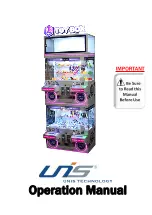
Important!
Do not modify the plug in any way.
To turn the machine on to sew, use the Power On/Off & Speed Control Switch.
Set it in the “L” position in order to sew at slower speeds or set it at the “H” position in
order to sew at higher speeds.
When the machine is threaded and ready to sew, lower the presser foot and step on the
foot controller. The machine will sew according to where you have set the Power On/Off
& Speed Control Switch
NEEDLE
I
FABRIC
I
THREAD GUIDE
There are various styles of needles available for your machine, depending on the type of
fabric you are sewing. Be sure to use the correct style and size of needle to achieve the
best results for your sewing projects.
The most common needle styles are regular point and ball point. The most commonly
used sizes are: 11/80,14/90 and 16/100. The smaller the number is, the smaller the needle
size is. The larger the number is, the larger the needle is. Use smaller size needles for lighter
weight fabrics and larger size needle for heavier weight fabrics. For best results, the chart
below offers some suggestions for matching thread type and needle type with various
fabrics.
Fabric
Thread
Needle Style
Needle Size
Lightweight: taffeta,
organdy, batiste
All purpose thread; Silk thread
2020
11
Medium weight: linen,
challis, chintz, cotton
All purpose thread; Silkthread
2020
14
Medium heavy: tweed,
denim, corduroy
All purpose thread; Heavy duty cotton
2020
14 or 16
Knit: stretch woven,
spandex, tricot
All purpose thread; Silkthread
2045
14
TO NOTE:
•
Regular point needles are designed for use with fabrics that are woven, such as
cotton, linen, silk, denim or twill. The style number for this needle is 2020.
•
Ball point needles are designed for use with fabrics that are stretch knit, such as
spandex, t-shirt knit or tricot. The style number for this needle is 2045












































